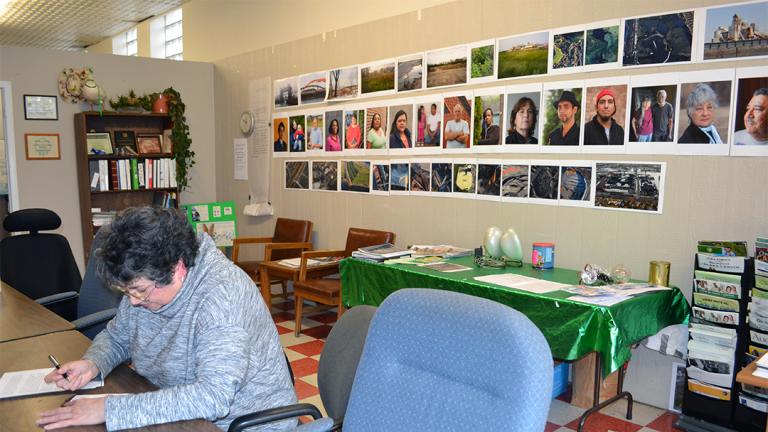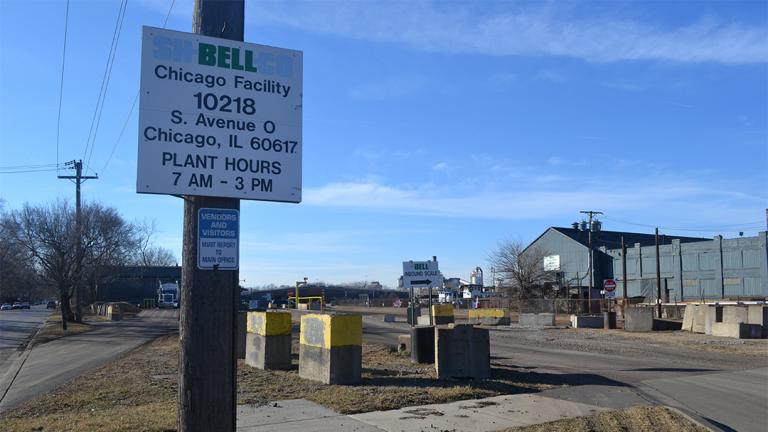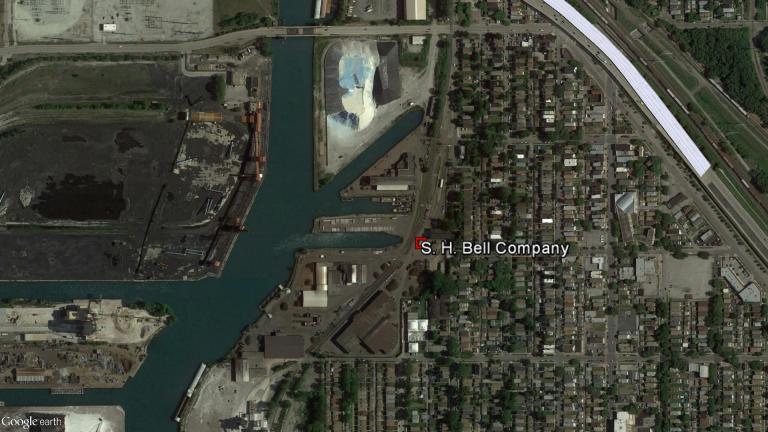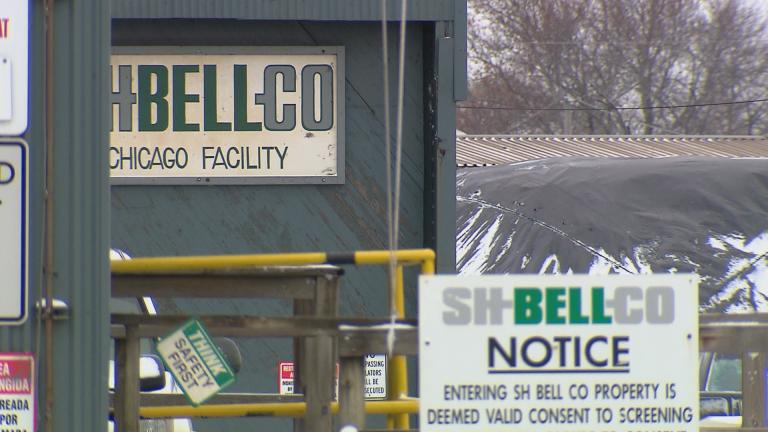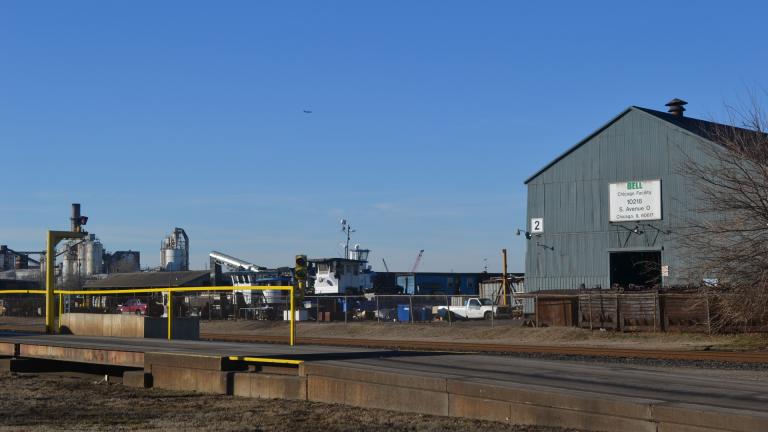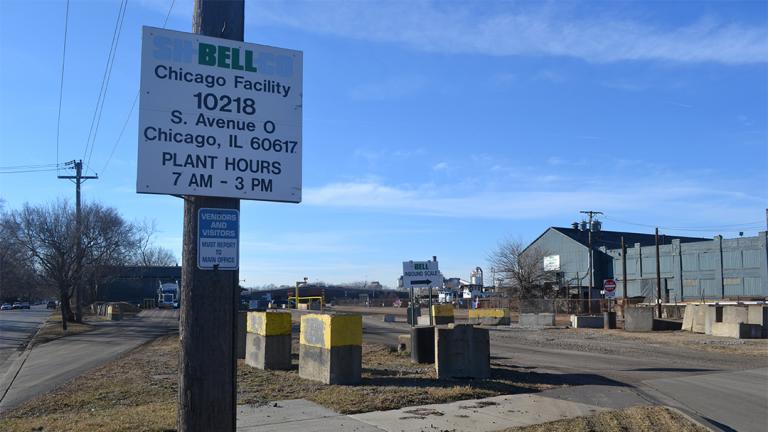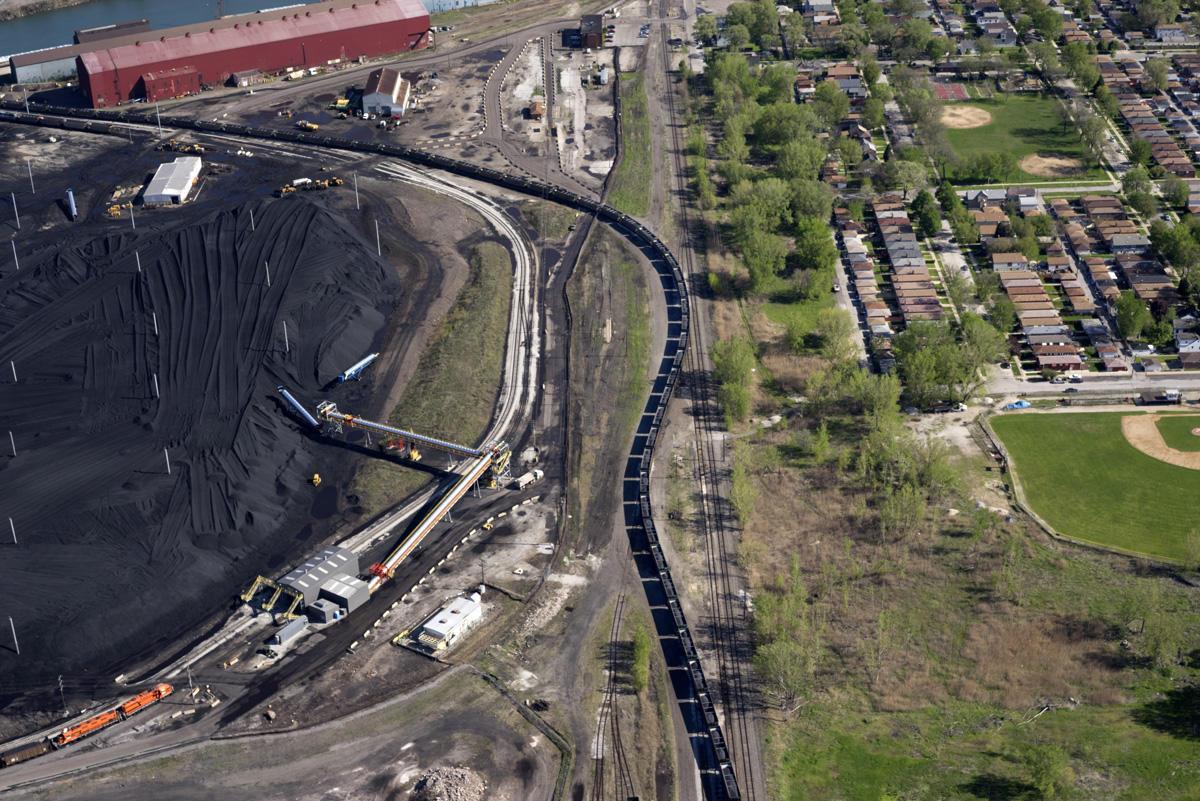 A former petcoke storage site near the Calumet River on Chicago's Southeast Side (Terry Evans / Courtesy of Museum of Contemporary Photography)
A former petcoke storage site near the Calumet River on Chicago's Southeast Side (Terry Evans / Courtesy of Museum of Contemporary Photography)
Several years after the city cracked down on Southeast Side facilities for releasing black clouds of lung-damaging petroleum coke into surrounding neighborhoods, a new federal bill aims to set in motion the first comprehensive study on the health and environmental impacts of the pollutant.
A bill introduced in Congress on Monday would require the federal government to examine potential health risks from exposure to petroleum coke, or petcoke, a solid byproduct of the oil refining process that had for years been stored in uncontained piles along the Calumet River.
The proposed legislation, cosponsored by U.S. Rep. Robin Kelly and supported by Sens. Dick Durbin and Tammy Duckworth, also calls for new federal safety standards for the storage and transportation of petcoke based on the government’s findings.
Durbin’s office said there is limited federal research on the health and environmental impacts of petcoke, and regulations on its storage and transportation vary by state.
“If the Trump administration wants to put the special interests of polluters ahead of the American people, then Congress has a responsibility to act,” Durbin said in a statement, adding that the bill would for the first time require a federal study on petcoke’s environmental and public health risks.
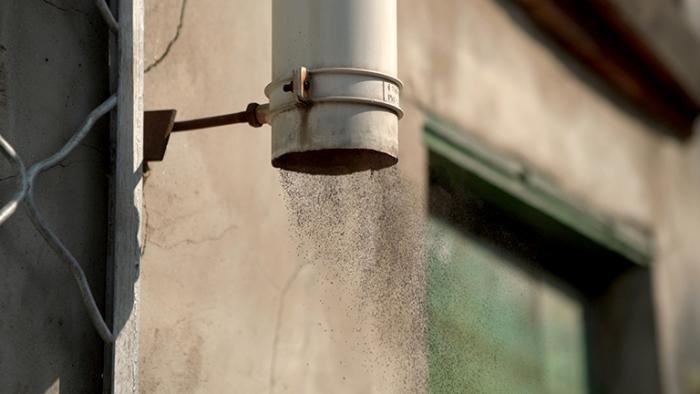 A production still from "I Can Only See Shadows," showing black dust exiting a pipe on Chicago’s Southeast Side. (Marissa Lee Benedict, David Rueter / Courtesy of Museum of Contemporary Photography)
A production still from "I Can Only See Shadows," showing black dust exiting a pipe on Chicago’s Southeast Side. (Marissa Lee Benedict, David Rueter / Courtesy of Museum of Contemporary Photography)
Durbin and Michigan Sen. Gary Peters proposed similar legislation in 2015. The new bill was introduced in the House by U.S. Rep. Rashida Tlaib, a Democratic colleague of Peters who represents residents in southwest Detroit who have raised concerns about their exposure to uncovered piles of petcoke.
If passed, the bill would direct the Department of Health and Human Services to conduct a full assessment of the impacts from petcoke production; an assessment for best practices for storing, transporting and managing petcoke; and an analysis of current and projected domestic production and use.
Increased production from Canadian tar sands has significantly increased the amount of petcoke coming into the U.S., according to Durbin’s office.
“The time for action is now before more harm is done,” said Kelly, D-Matteson, in a statement, “because our public health officials lack accurate data on the impact on petcoke on our families’ health and safety.”
Durbin and other officials have also called for additional health studies and monitoring related to brain-damaging manganese dust, which has been measured at alarming levels on the Southeast Side.
Contact Alex Ruppenthal: @arupp | [email protected] | (773) 509-5623
Related stories:
After Petcoke, Community Confronts More Dangerous Pollutant: Manganese

